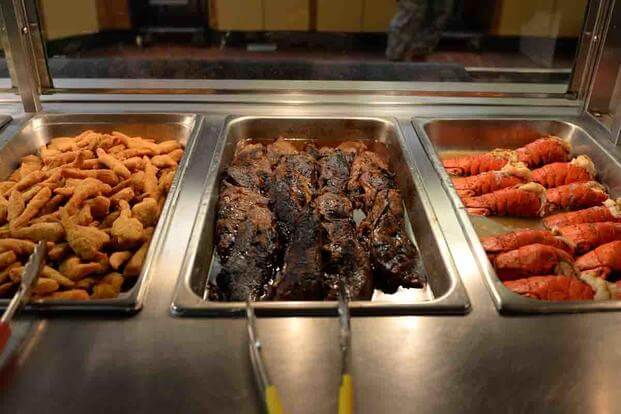Statistics show that 95% of all diets fail those who start them, and short-term success (whether or not that is the goal) is not a factor in those statistics. We have all experienced large weight losses, only to see people (or ourselves) regain weight in a year or less; the term "yo-yo diet" may come to mind.
Maybe instead of thinking about our food options as "good" or "bad" and feeling the guilt associated with "cheating on the diet," we should discover some healthy strategies to replace dieting. Think portion control with internal awareness or discipline without guilt.
Have You Ever Heard of "Intuitive Eating"?
I recently attended a National Strength and Conditioning Association regional conference, where I first learned of intuitive eating. If you think about it, we start this life as intuitive eaters. When we were hungry, we cried and were nourished. Then we went to sleep and woke up hungry again. That cycle continued until we were slowly introduced to our current societal eating standards: wake up, eat breakfast, eat lunch at noon and have dinner around 6 p.m., give or take an hour.
Intuitive eating is about breaking the cycle of eating just because it is time to eat. Instead, it's about having a healthier relationship with food. Also, the stigma around food choices is different compared to typical dieting. There is no elimination of food groups or starving yourself. It is more about building a better relationship with food. We eat when hungry but do not overeat until we are stuffed and feel horrible. Feeling horrible about eating is not part of intuitive eating, as the guilt of eating something you enjoy is gone. Be nicer to yourself.
Intuitive eating is gaining more popularity, even though it goes against societal norms of our relationships with food. We all know the struggles many dieters have with eating foods that are not enjoyable and not going out with friends to restaurants, bars or parties due to the temptations of large portions and empty calories. Instead, we would rather go through hunger pangs and struggle to eat three chicken-and-rice meals daily.
But skipping out on having fun social moments with friends and family because of potential temptations is not a healthy relationship with food. Can you see that the typical relationship with food is not healthy?
Internal Awareness with Portion Control
Intuitive eating requires awareness. Situational awareness of the time of day and food choices around you and internal awareness of realizing you are or are not hungry will drive eating choices. Choosing when and what to eat is largely driven by hunger cues, not the time of day. Mindless snacking is a common cause of diet failure, and intuitive eating teaches people to be more mindful of their food needs at any time.
Healthful eating requires portion control, smarter food choices and discipline. Eating until you "clear your plate" is one of the many societal lessons that intuitive eating works to help break. Saving food for leftovers is a logical answer and helps you build a better food relationship that can lead to eating fewer calories each day and, therefore, losing weight if that is one of your health-driven goals.
Discipline Without Guilt
I am all for building discipline in several ways, from waking up early when sleepy and comfortable to exercising even when you don't feel like it and eating better food choices and smaller portions even though you leave food on your plate for leftovers. Many are born with this discipline, though many build it through training in military service.
Intuitive eating requires discipline centered around awareness, respect for your body and focus on wellness, with no guilt, shame or societal pressures as part of the decision-making process about food. It takes discipline to build new habits and listen to internal and external cues to help us make wise food choices when hungry.
Intuitive eating is not for everyone, but dieting is also not the answer to long-term nutritional needs. Diets deprive us of certain foods and even food groups (macronutrients). They are temporary, and we need long-term food planning to be a lifestyle change that fits into our lives and daily physical activity. Intuitive eating programming may not have a specific "eat this and not this" rule, but finding healthier choices is the goal. Still, you are on the right path when you make your meals with lean proteins, carbohydrates (fruits, vegetables), healthy fats (fish, avocado, etc.), fibrous foods and water.
The true measure of building a healthy relationship with your food is that you do not feel guilty for eating a cookie for dessert. Nor do you feel like you now must work 100 calories harder since you had that cookie.
This is my initial understanding of intuitive eating, and I realize I am not a professional in this field. I am just sharing something interesting I learned recently. So if you want to learn more, check out the Principles of Intuitive Eating first, then the references and podcast options below:
References:
- Dieting Dilemma (Utah State University Nutrition)
- Wellness Rebranded Podcast (Dietitian, trainer, mental health counselor)
- Psychology of Eating: Three reasons why diets don't work
Want to Learn More About Military Life?
Whether you're thinking of joining the military, looking for fitness and basic training tips, or keeping up with military life and benefits, Military.com has you covered. Subscribe to Military.com to have military news, updates and resources delivered directly to your inbox.


















